Introduction
Property managers play a crucial role in the real estate sector. They serve as the bridge between property owners and tenants, ensuring that assets are well-maintained, tenants are supported, and investments generate steady returns. But property management isn’t just about collecting rent or handling maintenance requests. It requires specialized training in legal compliance, finance, operations, and customer relations.
In this blog, we’ll explore the types of training property managers typically receive, why this training matters, and how it prepares them to navigate the complexities of modern property management.
Why Training Matters for Property Managers
- Legal & Compliance Complexity: Property managers must comply with landlord-tenant laws, fair housing regulations, and local ordinances.
- Financial Stewardship: They oversee budgets, rent collection, and financial reporting.
- Operational Efficiency: Coordinating maintenance, inspections, and tenant communications requires systems and expertise.
- Tenant Relations: Soft skills such as conflict resolution and communication are critical to long-term tenant satisfaction.

Proper training ensures property managers are equipped with the knowledge and tools to handle these diverse responsibilities effectively.
Core Areas of Property Management Training
1. Legal and Regulatory Training
Property managers must stay compliant with a web of federal, state, and local laws. Training typically covers:
- Fair Housing Laws: Preventing discrimination in leasing practices.
- Residential Tenancies Acts / Landlord-Tenant Laws: Understanding rights and obligations.
- Eviction Procedures: Legal grounds, notice periods, and court processes.
- Health & Safety Codes: Fire safety, accessibility standards, and local housing codes.
This training often includes case studies and mock scenarios to help managers apply theory to real-world disputes.
2. Financial Management Training
Property managers act as custodians of owner and tenant funds. Training emphasizes:
- Rent collection and reconciliation.
- Budgeting for maintenance and capital improvements.
- Understanding operating expenses vs. capital expenditures.
- Creating financial reports for property owners.
- Using accounting software specific to real estate (e.g., Yardi, Buildium).
Financial training prepares managers to optimize ROI while ensuring accurate and transparent reporting.
3. Property Maintenance & Operations Training
A big part of the role is ensuring that properties remain safe, habitable, and attractive. Training includes:
- Routine maintenance planning and vendor management.
- Emergency response procedures (floods, fires, outages).
- Inspections for move-in/move-out, seasonal checks, and compliance.
- Sustainable property practices (energy efficiency, waste reduction).
Many training programs involve shadowing experienced property managers or conducting mock inspections.
4. Communication & Tenant Relations Training
Managing tenants requires diplomacy and empathy. Training often covers:
- Conflict resolution techniques.
- Customer service best practices.
- Handling tenant complaints effectively.
- Negotiating lease renewals and rental increases.
Soft-skill development ensures managers can maintain professional yet supportive relationships with tenants.
5. Technology Training
Modern property management is tech-driven. Managers receive training in:
- Property management software (AppFolio, Rent Manager).
- CRM systems for tenant communications.
- Online payment processing.
- Digital marketing for vacant listings.
This enables them to streamline operations and offer tenants a seamless digital experience.
6. Risk Management & Insurance
Property managers must understand risks that can impact owners and tenants. Training often includes:
- Types of property insurance (liability, fire, flood).
- Risk assessment and mitigation planning.
- Handling tenant or visitor injuries.
- Cybersecurity awareness for tenant data protection.
Training Pathways for Property Managers
Formal Education Programs
- Degrees in Real Estate or Business Management.
- Certifications such as:
- Certified Property Manager (CPM®) from IREM.
- Residential Management Professional (RMP®) from NARPM.
- Real Estate Broker’s License (varies by jurisdiction).
On-the-Job Training
- Shadowing senior managers.
- Learning through real property portfolios.
Continuing Education
- Mandatory CE credits for license renewal.
- Webinars, workshops, and conferences.
Specialized Training for Different Property Types
Not all property management is the same. Training often varies depending on whether managers handle residential, commercial, industrial, or mixed-use properties.

1. Residential Property Management Training
- Focuses on landlord-tenant laws, lease renewals, rent collection, and unit inspections.
- Emphasizes tenant retention strategies and day-to-day operational management.
- Often includes customer service simulations to prepare managers for resolving tenant disputes.
2. Commercial Property Management Training
- Covers retail, office, and industrial leases, which are more complex than residential leases.
- Training includes:
- Triple-net (NNN) lease structures.
- Negotiation of tenant improvement allowances.
- Understanding commercial zoning regulations.
- Commercial training also emphasizes financial modeling and long-term lease management.
3. Community & HOA Management Training
- Specialized courses in association governance.
- Covers board relations, community engagement, and reserve fund management.
- Example: The Community Associations Institute (CAI) offers the CMCA® (Certified Manager of Community Associations).
4. Luxury & Short-Term Rental Management
- Training includes hospitality management skills (guest experience, concierge services).
- Focus on platforms like Airbnb or VRBO, with emphasis on dynamic pricing, housekeeping, and rapid tenant turnover.
Ethics and Professional Standards Training
Property managers must adhere to strict ethical guidelines. Training in this area includes:
- Fair Housing Compliance: Avoiding discriminatory practices.
- Conflict of Interest Policies: Transparency in vendor selection.
- Data Privacy & Security: Protecting tenant and owner information.
- Professional Codes of Conduct: Many associations (IREM, NARPM) enforce ethical standards.
Ethical training ensures managers protect both tenants and owners while maintaining industry credibility.
Case Studies: Impact of Training
Case Study 1: Residential Manager Improving Tenant Retention
- Situation: A residential property faced high tenant turnover.
- Training: Manager completed a tenant relations course focusing on communication and conflict resolution.
- Outcome: Turnover dropped by 20% in one year.
Case Study 2: Commercial Property Manager Optimizing Leases
- Situation: A new manager struggled with complex lease agreements.
- Training: Enrolled in a commercial property management certification program.
- Outcome: Improved lease negotiations, boosting rental income by 15%.
Case Study 3: HOA Manager Restoring Trust
- Situation: HOA residents distrusted the board due to poor communication.
- Training: Manager completed CAI’s community engagement workshops.
- Outcome: Improved transparency and resident satisfaction, reducing board complaints by 40%.
Pitfalls & Challenges in Property Management Training
- Overemphasis on Theory
- Some programs lean heavily on textbooks but lack real-world application.
- One-Size-Fits-All Training
- Residential vs. commercial requires different knowledge, but many courses generalize.
- Keeping Up With Law Changes
- Landlord-tenant laws, tax codes, and safety standards evolve quickly. Continuous updates are essential.
- Technology Gaps
- Rapidly evolving PropTech tools mean managers must retrain often.
- Soft Skills Neglected
- Technical training is strong, but many managers lack formal people skills training, which is equally critical.
Best Practices for Property Manager Training Programs
- Blend Theory with Practice
- Include simulations, case studies, and role-playing exercises.
- Mandatory Continuing Education
- Ensure managers renew knowledge annually on legal updates.
- Specialization Tracks
- Separate training for residential, commercial, HOA, and short-term rentals.
- Technology-First Approach
- Training should cover property management software, CRM tools, and digital marketing.
- Mentorship & Shadowing
- Pair trainees with experienced managers for real-world exposure.
- Soft Skill Development
- Communication, negotiation, and empathy should be integral parts of the curriculum.
Conclusion
Property managers receive multi-faceted training that equips them with legal, financial, operational, and interpersonal skills. Training pathways include formal education, certifications, on-the-job learning, and continuing education.
Specialized programs prepare managers for residential, commercial, or HOA portfolios, while ethical and professional standards safeguard trust in the industry.

The best property managers are those who commit to continuous learning, embrace new technologies, and balance compliance with human connection.
FAQs
1. Is formal education required to become a property manager?
Not always. Many managers enter through certifications or licensing programs, though degrees in real estate or business can be beneficial.
2. What certifications are most recognized?
CPM® (Certified Property Manager), RMP® (Residential Management Professional), CMCA® (Certified Manager of Community Associations).
3. How often must property managers update their training?
Most states require continuing education every 1–2 years for license renewal.
4. Do property managers get legal training?
Yes — they receive training in fair housing, tenant laws, eviction procedures, and compliance.
5. How do property managers learn technology skills?
Through vendor workshops, software certifications, and PropTech-specific training modules.
6. Is training the same worldwide?
No. Requirements vary widely by country and even by state or province.

